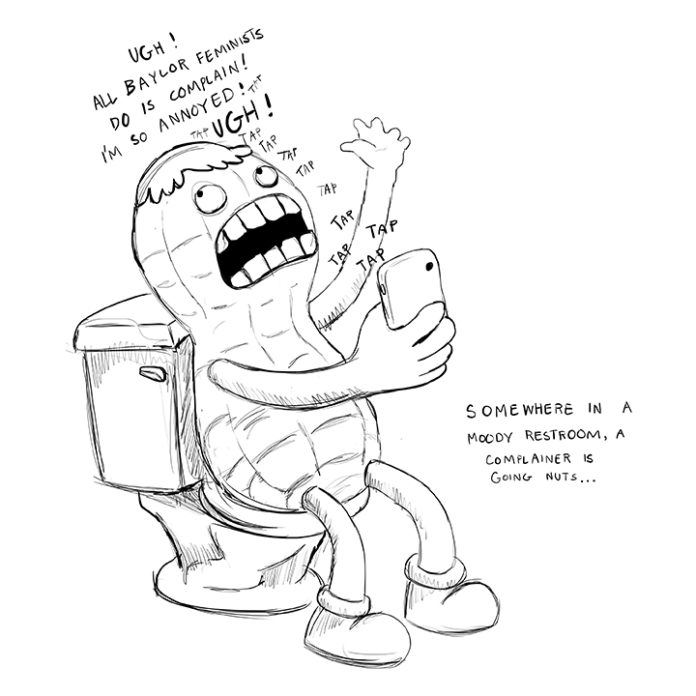Scroll through Yik Yak and you’ll find posts rolling through the feed reading, “America has rejected their kind,” and “whiny, rich white girls.” These are just a few of the comments that have been made on social media to refer to the Baylor Feminists. The group, which is now known as the Waco Area Feminists on Facebook, has received an onslaught of hate since it’s formation. This has only worsened recently, as members remain vocal about the university’s failure to meet Title IX requirements and the school’s alleged treatment of sexual assault victims. Critics are quick to pile on criticism, but fail to acknowledge any contributions made by the group.
The organization has played a pivotal role in providing a support system for victims of sexual assault. Last February, ESPN broke a story that would spark an investigation into accusations regarding Baylor’s mishandling of sexual assault cases. The weeks to follow would give time for several people to step forward with their experiences with sexual violence. The Baylor Feminists page was filled with survivors trying to make sense of what had happened to them at the university or in other instances in their lifetime. Group members were there when students needed a listening ear and provided a medium for voices to be heard.
Around the same time, multiple members also joined students, faculty and alumni in asking the university to provide answers to the Title IX allegations. In fact, it was a feminist member of the group who had organized a candlelight vigil for victims of sexual violence in front of the Albritton House. The event brought several community members together in a time of uncertainty.
There have even been issues brought forward by members of the group that garnered support throughout campus. In October, Thousand Oaks, Calif. senior Raquel Katch created a Change.org petition asking Baylor to provide free pads and tampons in every non-residential bathroom on campus. The issue was brought before student government and while no changes ultimately came from it, the petition —endorsed by members and non-members of the group— fostered a discussion about female menstruation.
Last year we ran an editorial encouraging the group to adopt better discussion tactics. This resulted in various members coming forward with similar ideas concerning forum procedures. To this day, the Waco Area Feminists are a collective work in progress. With a fairly diverse group of members, there are bound to be moments of disagreement but this does not delegitimize the group’s efforts to provide an avenue for people to discuss issues of equality and justice.
Opponents of the group frequently express frustration for the groups’ “complaining”, but if the record shows anything it is that this “complaining” has actually led to several tangible changes. Whether you agree with the Waco Area Feminists or not, name-calling is never okay. There are other alternatives to an unproductive insult. One can criticize actions, offer up solutions or simply challenge members to do better. Either way, one should make sure that they are part of the solution, not the problem.






